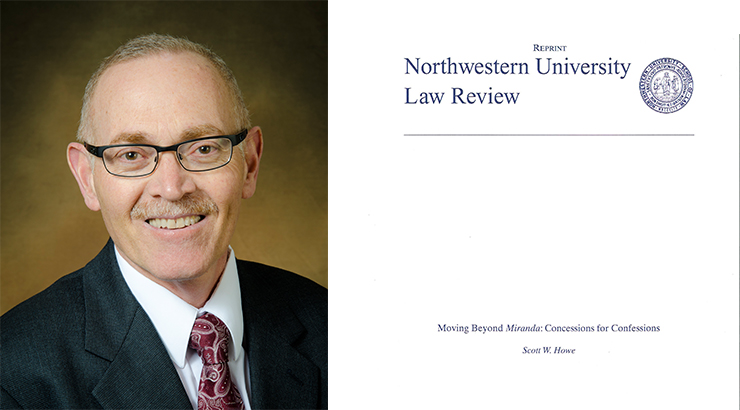
Fowler Law Professor Scott Howe Publishes “Moving Beyond Miranda: Concessions for Confessions”
July 20, 2016
Chapman University Dale E. Fowler School of Law Professor Scott Howe’s article “Moving Beyond Miranda: Concessions for Confessions” was recently published in Volume 110, Number 4 of the Northwestern University Law Review.
From the abstract:
The law governing police interrogation provides perverse incentives. For criminal suspects, the law rewards obstruction and concealment. For police officers, it honors deceit and psychological aggression. For the courts and the rest of us, it encourages blindness and rationalization. This Article contends that the law could help foster better behaviors. The law could incentivize criminals to confess without police trickery and oppression. It could motivate police officers involved in obtaining suspect statements to avoid chicanery and duress. And, it could summon courts and the rest of us to speak more truthfully about whether suspect admissions are the product of informed, intelligent, and voluntary decisions. States could promote these outcomes by providing valuable sentencing concessions to those who confess.
Scott Howe has been a professor at the law school since August, 1996. He has substantial experience both as a criminal defense lawyer and as a teacher in the fields of criminal law, criminal procedure and evidence. He earned his B.A., summa cum laude, in economics, from the University of Missouri, where he was inducted into Phi Beta Kappa. He earned his JD, cum laude, from the University of Michigan, where he was Administrative and Articles Editor on the Michigan Law Review. After law school, Professor Howe worked for five years as an attorney for the Public Defender Service for the District of Columbia, defending indigent persons charged with serious crimes, including first degree murder. He subsequently served as Deputy Director of the Texas Death Penalty Resource Center, in Austin, Texas, representing inmates under execution warrants on Texas’ death row. His representation during this period of death-row inmate Kerry Max Cook is recounted in Mr. Cook’s acclaimed memoir, Chasing Justice: My Story of Freeing Myself After Two Decades on Death Row for a Crime I Didn’t Commit. Before coming to Chapman, Professor Howe taught as an adjunct professor at the University of Texas Law School and then became a tenured full professor at Western New England College School of Law. At Chapman, he has been voted Professor of the Year three times by the graduating class. Recent articles include “Deselecting Biased Juries,” 2015 Utah Law Review 89 (2015), “The Federal Death Penalty and the Constitutionality of Capital Punishment,” 50 Criminal Law Bulletin (2014) and “The Eighth Amendment as a Warrant Against Undeserved Punishment,” 22 William & Mary Bill of Rights Journal (2013), with other articles published in a variety of leading law journals, including University of Pennsylvania Law Review, Iowa Law Review, and Vanderbilt Law Review. He is also co-author of the fourth edition of California Criminal Law: Cases and Problems, a casebook published in 2016, and the third edition of Understanding Capital Punishment Law, a treatise published in 2012. Professor Howe served as Associate Dean for Academic Affairs from 1999 to 2007 and twice served as Interim Dean, from 2010 to 2011, and again during the spring of 2016.
